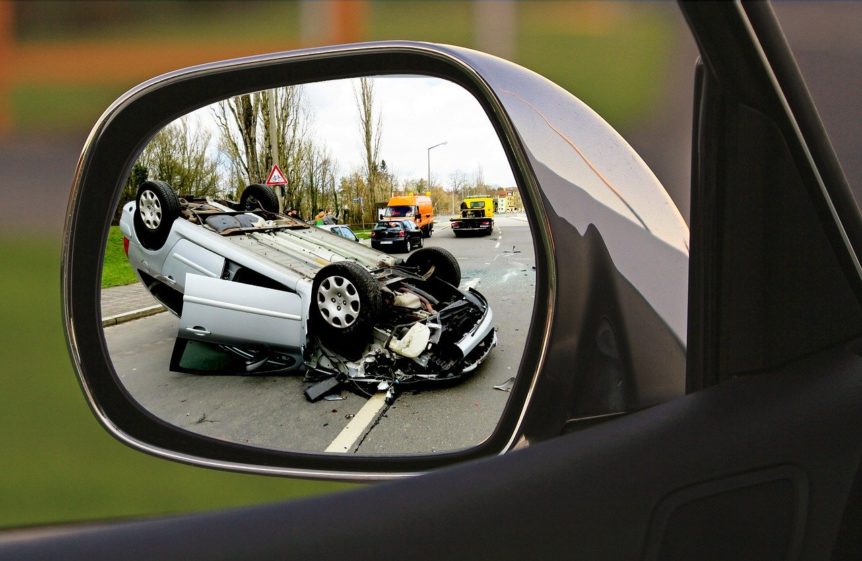Accidents happen all the time – that’s why they are called accidents. In the US, an estimated 2.7 million people sustain injuries in road-related accidents every year. It is entirely likely that the majority of them resulted in personal injury cases to hold the liable parties accountable for their role in the mishap.
However, these are not the only kind of injury claims that exist. Any incident that results in one of the parties suffering some sort of pain, suffering, or a notable change in their quality of life all counts as a personal injury claim.
Determining whether or not you have a case that you can pursue can be quite confusing, and the whole process can be daunting. However, it’s important to take the necessary steps to safeguard your legal rights if you feel that your injuries were the result of someone else’s negligence.
Do I Have a Personal Injury Case?
To determine whether you have a case, you first need to understand what constitutes a personal injury lawsuit in the first place. Put simply, this type of legal dispute arises when one party suffers injury or harm from an accident in which another party bears some level of responsibility for causing it.
In such instances, the responsible party’s insurance is required to offer monetary compensation to the injured party. This is supposed to go towards footing medical bills or any other ongoing medical expenses.
It also goes towards compensating the victim for the pain and suffering they’ve endured during the whole ordeal. If you’ve sustained harm or injury and are wondering whether you have a personal injury case, here are three basic criteria you can use to tell.
1. Negligence
Suppose you are driving about town running a couple of errands, bobbing your head to your favorite tune… essentially minding your own business before stopping at a red light. Suddenly a loud bang startles you, and you realize that a truck driver has just rear-ended you!
You unbuckle your seatbelt, open the door, and step out of your car to inspect the damage. You find your rear bumper on the ground, surrounded by shuttered taillights and a conspicuous dent on the trunk of your car.

In such a scenario, the truck driver was careless since they failed to brake at an appropriate distance behind the car ahead. In the eyes of the law, their actions would be considered negligent, and they would be deemed responsible for the accident.
3. Negligence Caused Personal Injury
Continuing with the same illustration above, as you’re inspecting the damage, you begin to feel a sharp pain in your neck as a result of the severe jerk to your head following the impact. As a result, you then begin to experience frequent severe headaches that you never had before the crash and which don’t seem to be getting any better with the medication your doctor provides.
You further learn that the truck driver happened to be in a heated exchange with someone on their phone moments before the impact, so they didn’t even notice that:
a. The traffic lights were red, and
b. There was a car ahead of them
You can deduct from this scenario that the driver’s negligence caused the whiplash and the frequent headaches that you now have to live with.
3. Compensatory Damages
In keeping with narrative, suppose that you now have to take the next two weeks off work to recover from your injuries. Given the nature of your contract with your employer, time away from work results in you receiving 50% of what would be your daily wages for the duration you’re away.
If that’s not enough, you find out that your insurance policy doesn’t even cover a significant portion of the medical bills from your frequent doctor visits to treat your recurring headaches. So, you’re forced to foot the bills out-of-pocket.
Moreover, having to deal with this entire situation in addition to your headaches has caused you untold stress, anxiety, pain, and suffering. In such an instance, the truck driver owes you some sort of monetary compensation to help you deal with the challenges of your new reality.
What Type of Lawyer Do I Need?
There are different types of personal injury lawyers whose specialty lies in dealing with specific types of injury claims. You want to find an attorney with a proven track record of dealing with and winning your specific type of claim.

Personal Injury Attorneys
A personal injury lawyer is a type of civil litigation lawyer whose specialty lies in providing legal representation to plaintiffs who allege physical and psychological harm or injury due to the negligent actions of another person or entity.
Personal injury law is an umbrella term that encompasses a host of different types of cases. It involves any of the following claims:
- Brain injuries
- Construction accidents
- Motor vehicle accidents
- Medical malpractice
- Slip and fall accidents
- Spinal cord injuries
- Aviation accidents
- Bicycle accidents
- Boating accidents
- Wrongful death
The type of lawyer you’ll need ultimately depends on the specific nature of the personal injury claim. They will handle your case from inception all the way to appeal. Here are some of the most common types of lawyers you’ll find.
Motor Vehicle / Car Accident Lawyers
If you sustained harm or injury in a motor vehicle accident as a driver, passenger, or pedestrian, you’d need to get in touch with a car accident attorney. They specialize in going after monetary compensation if you are the aggrieved party. They can also defend your rights if you are the accused party.

These types of lawsuits are one of the most difficult claims to litigate since you not only have to prove that the other party is entirely liable for your injuries, but you may also face huge obstacles when it comes to the settlement of your claim, especially if it exceeds the policy limits. For this reason, you must get a sterling, well-reputed attorney who is well-versed in handling these types of claims.
Medical Malpractice Attorneys
Doctors and other medical practitioners truly go above and beyond to care for and treat their patients. They work under immense pressure but still do their level best under their present circumstances to ensure that no harm comes to their patients while they are under their care.
Nevertheless, to be human is to err, and despite their best efforts, even the most astute doctor can make mistakes. Medical malpractice cases come in various forms. Some of these include:
- Failure to properly diagnose an ailment
- Failure to properly treat an ailment
- Pursuing a treatment course (against their better judgment) that is likely to harm the patient
- Pursuing a treatment course that contravenes the existing standards of care
- Performing the wrong procedure on a patient like amputating the wrong limb
- Exposing the patient to harmful elements like allergens
- Giving a patient the wrong dose of a potentially harmful drug
One of the basic requirements for a medical malpractice claim is that the aggrieved party has not only to prove that they were injured as a result of the doctor’s actions, but that there was also a better treatment option available.
You must prove that the doctor in question went against the prescribed standard of care. This is often difficult to do, so you need to retain the services of the best medical malpractice lawyers if you hope to make any headway with your lawsuit.
Personal Injury vs. Medical Malpractice
If you’ve come across these two legal terms, you’re most likely wondering how personal injury cases differ from medical malpractice cases. Well, in theory, they both mean the same thing, that is, an individual suffers harm or injury through no fault of their own and seeking monetary compensation as a result.

The difference between them becomes apparent when you consider the scope of each. Personal injury claims cover all sorts of harm inflicted by other parties. They could involve anything from a slip and fall to a dog bite incident.
Medical malpractice is classified as a branch of personal injury law but is more specific as it deals with the negligence of medical care professionals. Here’s what makes the two distinct.
Complexity
A personal injury claim is more straightforward. It is usually doesn’t involve a complex litigation process to establish whether the accused party is responsible for the loss or injury. For instance, if you fell outside a storefront that had a wet or slippery floor, it is the store owner’s responsibility to safeguard the wellbeing of passers-by.
They could have done this by cordoning off the wet area to ensure that no accidents happen. They could have also taken the initiative to change the tiles or install non-slip mats if the floor is slippery.
They could have also put a sign up to warn the public of the slippery floor so that they can take the necessary precautions to prevent an unprecedented fall. If the store owner did none of these, then you have a right to seek compensatory damages if you slip and fall.
A medical malpractice suit, on the other hand, requires every minuscule detail to be analyzed with a magnifying glass and a fine-tooth comb. The sheer volume of details that have to be analyzed in these types of lawsuits are excessive compared to other personal injury claims.
Lawyers who deal with medical malpractice suits also have to be well-versed in medical facts, terminology, jargon, and standard operating procedures to successfully prove liability on the part of the medical practitioner.
Admission of Fault
The success rate of all injury suits is inherently lower compared to that of medical malpractice suits. The reason for this all goes back to the straightforwardness of it all. The process is also a lot easier when there is an admission of fault, which happens more often than you might think.
Unfortunately, in medical malpractice cases, doctors are heavily backed by their insurance company and the hospital they work for, so they deny any liability right up to the very end.
Workers’ Compensation Lawyers
Workers’ compensation refers to a system where company employees receive compensatory damages for harm or injuries they sustain while on duty. Here’s how personal injury cases differ from workers’ compensation cases. It has everything to do with fault.
Workers’ comp seeks to pay employees for medical and rehabilitation costs, as well as lost wages without due regard for their fault or negligence. However, due to this “no-fault” system, employees, therefore, forfeit their right to sue their employers directly for other damages or negligence.
In personal injury cases, however, “fault” is a requirement. Perhaps the biggest difference between workers’ compensation cases and personal injury lawsuits is that in the latter, the aggrieved party is entitled to pain and suffering damages. The same can’t be said for workers’ comp.
So, the defining factor that determines whether you have a personal injury or workers’ compensation case has to do with where the injury occurred. If you sustained injuries at work, a competent workers’ compensation attorney could help you get the damages you’re entitled to.
Compensatory Damages in Personal Injury Cases
Once you establish that you have a legal basis on which to seek compensation, what kind of damages can you claim in your lawsuit? The most common ones you can sue for include:
- Cost of medical bills
- Loss of income
- Loss of property
- Pain and suffering
- Emotional distress
- Loss of consortium
- Loss of enjoyment
- Punitive damages
The whole premise behind suing for compensation is to try to put a dollar amount on the consequences you have suffered as a result of an accident or incident. The idea is to try to make you “whole” again.
When in Doubt – Consult
Once you’ve established that you have a personal injury case, that’s only part of the battle won. Whether or not you have a strong case is an entirely different discussion. It helps to consult with an experienced attorney to help you explore all the options available to you to figure out whether your claim is worth pursuing.
If you have more legal questions, you can also chat now with a Laws101.com attorney, where you’ll be instantly connected to a lawyer who can give you legal guidance on your specific case or question.
